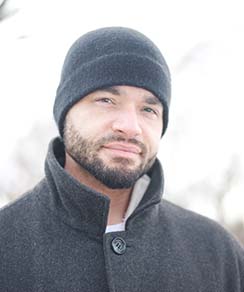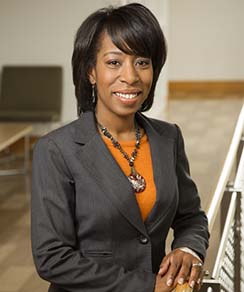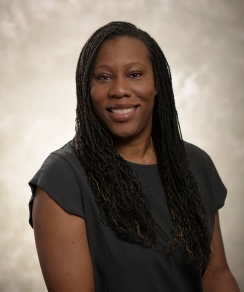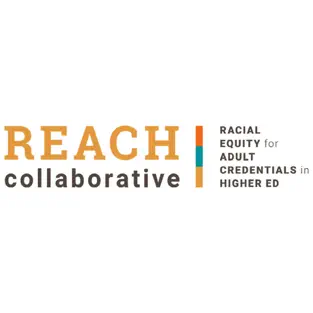
REACH Collaborative
This project has been completed and is no longer active.
However, we hope you are able to utilize its resources.
The REACH Collaborative brings together a network of teams from six states – California, Colorado, New York, North Carolina, Texas, and Virginia – along with coaches, equity champions, and a host of intermediary partners to strengthen credential pathways with the supports and curricular alignment that post-traditional adult learners of color age 25-64 need to reskill and recover from the pandemic. Coordination of the REACH Collaborative is led by Education Strategy Group (ESG) in partnership with the Office of Community College Research and Leadership (OCCRL) at the University of Illinois, and the University of Pittsburgh’s School of Education, with generous support from the Lumina Foundation. In collaboration with our learning partner, DVP-Praxis, the REACH Collaborative helps to build the capacity and tools for equitable system change and improved adult student outcomes hopefully resulting in a 2% increase in credential attainment across 130+ community colleges through its intentional framework for developing academic pathways focused on three main pillars —credentials to degrees pathways, bundled and sequenced supports, and culturally sustaining practices—for racially minoritized adult learners.
Meet the REACH Equity Champion Consultants!
Content shows biographies of Equity Champion Consultants as of May 2022.
Goals
The goal of the REACH Collaborative is to attain a 2% increase in credential attainment for enrolled Black, Hispanic, and Native American adults, ages 25-64, at participating community colleges by 2023.
Further Resources
Discover the REACH Collaborative microsite, which provides project details by state as well as briefs on the three main pillars of this work: credentials to degrees pathways, bundled and sequenced supports, and culturally sustaining practices.
Webinars
REACH Equity Champion Consultants Panel Discuss Resisting Racial Equity While Trying to Diversify Pathways: Navigating State Sociopolitical Contexts
In this webinar, Gianina Baker (University of Illinois Urbana-Champaign) hosts panelists Susana Munoz (Colorado State University-Fort Collins), Richard Reddick (University of Texas at Austin), and Felecia Commodore (Old Dominion University) to discuss building coalitions and debunking misinformation specific to racial equity within current institutional and state climates resistant to such work.
Podcasts
Episode 1: Inclusive and Equitable Pedagogy/Pathways and Wraparound Support Services for Students of Color
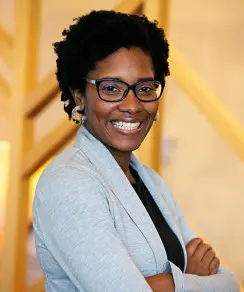
In this episode, host Dr. Gianina Baker (pictured at left, University of Illinois Urbana-Champaign) talks with Dra. Reyna Anaya (Community College of Aurora), Dr. Denise Henning (University of North Carolina-Wilmington), and Dr. Mara Lazda (Bronx Community College) on the topics of inclusive and equitable pedagogy and pathways. The participants also discuss wraparound support services for students of color.
Episode 2: Root Analysis and Addressing Structural Racism in Pathways
In this episode, host Jason A. Keist (University of Pittsburgh) gets into a root analysis with Drs. Michael Baston (Cuyahoga Community College) and Susana Munoz (Colorado State University) about the structural racism in credential pathways.
Episode 3: Moving Beyond Diversity Toward Racial Equity in Pathways
In this episode, host Eboni Zamani-Gallaher, former director of OCCRL, talks with current OCCRL Director Lorenzo Baber (University of Illinois Urbana-Champaign) and Drs. Heather Shotton (Fort Lewis College) and Ereka Williams (Dogwood Health Trust Foundation) about moving beyond diversity and toward racial equity in pathways.
Episode 4: Scalable Implementation of Culturally Responsive Practices
In this episode, host Dr. Raina Dyer-Barr (University of Pittsburgh) talks with Drs. Pamela Eddy (William & Mary College), Mayra Padilla (Contra Costa College), and Luis Ponjuan (Texas A&M University) about scalable implementation of culturally responsive practices.
Episode 5: Problematizing Guided Pathways from an Activist Leadership Lens
In this episode, host Eboni Zamani-Gallaher, former director of OCCRL, talks with Drs. Edward Bush (Consumnes River College), Felicia Commodore (Old Dominion University), and Richard Reddick (University of Texas-Austin) about problematizing guided pathways from an activist leadership lens.
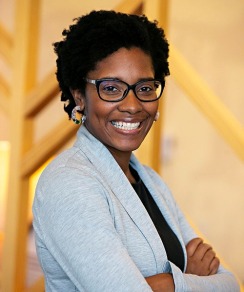
Episodes 6, 7, and 8
REACH podcast episodes 6, 7, and 8 were hosted by Gianina Baker (at left), associate director of evaluation, learning, and equitable assessment at the Office of Community College Research and Leadership. While the first several REACH podcasts focused on culturally sustaining practices and guided pathways, the throughline for the final three conversations is one of hope. In each episode, the podcast guests answer the question: What do you see as the hope, maybe even radical hope, in doing racial equity work? Discover their answers and much more via the conversations below.
Episode 6: What is the Cost of Doing Nothing? Redistributing Power
In this episode, host Gianina Baker (University of Illinois) talks with Drs. Denise Henning (University of North Carolina Wilmington), Ereka Williams (Dogwood Health Trust Foundation), and Ed Bush (Consumnes River College) about the urgency that racial equity demands of our educational systems and the change levers that need to be tapped to allow a redistribution of power.
Episode 7: How Do You Continue to Make Racial Equity Work a Priority with New Leadership at Community Colleges?
In this episode, host Gianina Baker (University of Illinois) talks with Drs. Reyna Anaya (Community College of Aurora), Luis Ponjuan (Texas A&M University), Pamela Eddy (William & Mary), and Michael Baston (Cuyahoga Community College) about what new leaders need to know regarding racial equity work happening in their states. The guests also offer resources for those who want to ramp up their knowledge of racial equity.
Episode 8: Sustainability Through the Lens of Culturally Responsive Practices in Changing Educational Landscapes
In this episode, host Gianina Baker (University of Illinois) talks with Drs. Mara Lazda (Bronx Community College, City University of New York) and Mayra Padilla (Contra Costa College) about how they approach culturally sustaining practices work. The guests also share ideas they have to guide, scale, and sustain such work.
